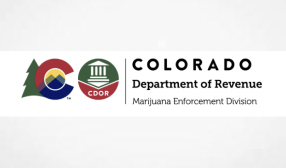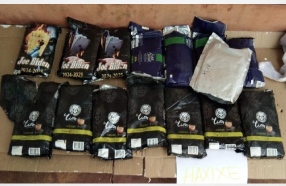It took Gideon (not his real name) about a year, but a few months ago, he got his two 13-year-old convictions for the possession of small amounts of marijuana expunged from his criminal record. Gideon was excited that, with a clean record, he would finally be able to get a visa to travel to the US so he could visit his son, who he had not seen in ages. But it was not to be.
Gideon’s hope of seeing his son soared when there were talks about decriminalising marijuana in 2018 and 2019. Then Attorney General Faris Al-Rawi said the government was looking at expunging the records of those convicted of possession of under 30 grammes of marijuana. Al-Rawi said then the law would affect over 85,000 people who were before the courts for marijuana possession over the previous ten years as well as 101 people in jail, including 14 children in rehabilitation centres. The bill was passed and proclaimed in December 2019. Section 5 of The Dangerous Drugs (Amendment) Act 2019 said:
“(2) Notwithstanding the provisions of section 50K of the Police Service Act, any offence on the criminal record of a person prior to the commencement of the Dangerous Drugs (Amendment) Act, 2019, for the possession of not more than 60 grammes of cannabis or not more than ten grammes of cannabis resin shall be expunged by the Commissioner of Police. (3) A person who has been convicted for the possession of not more than 60 grammes of cannabis or not more than ten grammes of cannabis resin may apply through his attorney-at-law to the Commissioner of Police to have that offence expunged from his criminal record. A person who has had an offence expunged from his criminal record may, in respect of that offence, apply for a pardon under section 87 of the Constitution. (4) A person who has had an offence expunged from his criminal record under subsection (2) or (3) may, in respect of that offence, apply for a pardon under section 87 of the Constitution.”
The act also allowed for the cultivation of up to four plants and possessing 30 grammes of the flower. Gideon, a businessman, told Newsday he started the process of getting his record expunged in 2023. He was held on two separate occasions for possession, both under 30 grammes, and he was fined $3,000 each time. “When I heard about it I wanted to get my record cleaned because I wanted to get my visa. Once you have a marijuana conviction, no matter how little bit, they don’t ever grant you a visa so your records have to be clean.”
He explained he went to the Criminal Records Office of the police service at Riverside Plaza, Port of Spain, to get the date of his case. He e-mailed the information to “the courthouse” which found the extract from the magistrates’ case book and, after several weeks, replied to his request with the necessary information. With that information, he wrote to the Commissioner of Police requesting an expungement and dropped it off at the Police Administration Building in Port of Spain. After two months, in March, he was called in and told his record was clear. He said he applied for a US visa after his record was expunged but he still was not approved. He said he was truthful on his application saying he had previous convictions which were expunged but he was told the expunged convictions were the reason he was denied. When he went back to the police and asked about the matter he was told he had to take another step.
“The woman told me when it expunges sometimes it still has ‘CS’ on the computer. I asked what the CS means and she said it meant ‘caution.’ She said they still trying to figure out how to get rid of the CS on the computer. She said, for now, to get the CS off the computer I have to get a presidential pardon and that has a long list of stuff to get that. “Some people said I shouldn’t have done that (reveal his convictions to the embassy) but I was just moving honest. So I have to get the presidential pardon now to get my visa.” In a release issued in December 2019, the US embassy said under US immigration law visa applicants who had been arrested or convicted for any offence, including drug-related offences, still had to disclose that information, even if expunged, when making the application. It added that previous arrests and convictions, as well as failure to reveal arrests or convictions, could make a person ineligible for a visa.
Newsday contacted the US Embassy about its visa policy on expunged records and whether such applicants were ever approved for visas. A spokesperson at the US Embassy said, “Individual visa applications and records are private, and the US Embassy will not disclose information on any visa record. All visa applications are adjudicated individually, based on US immigration law.”
















